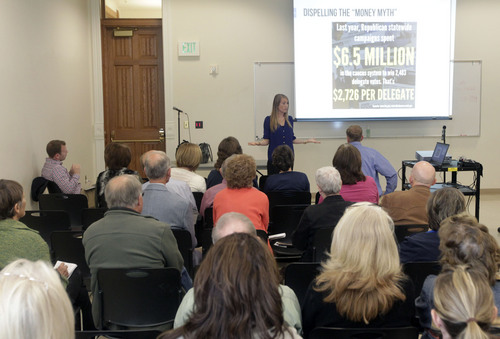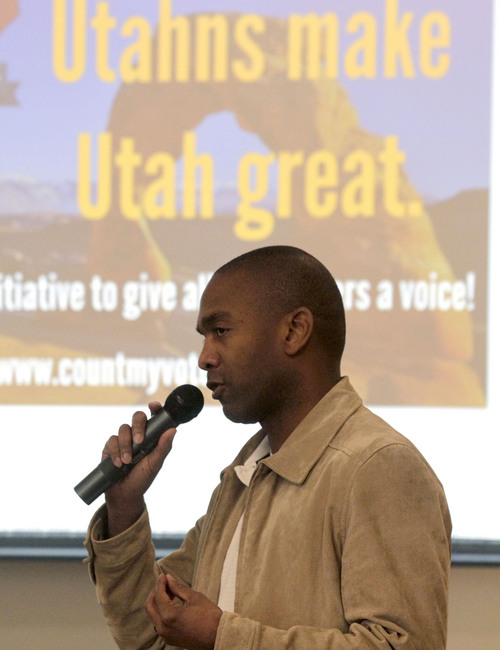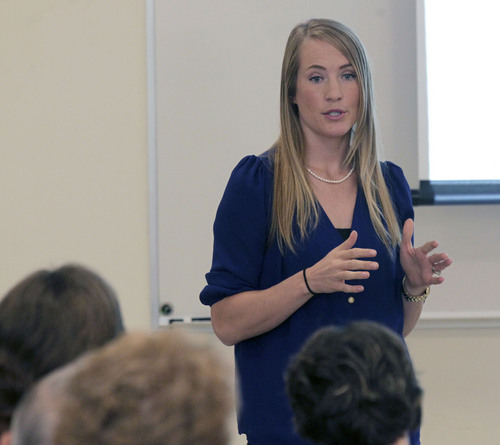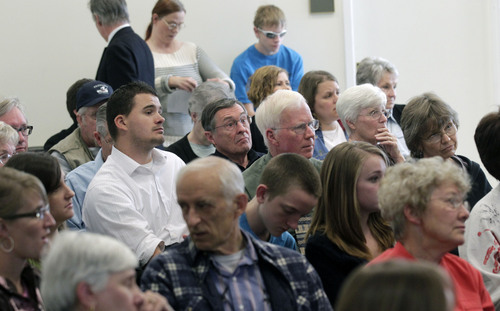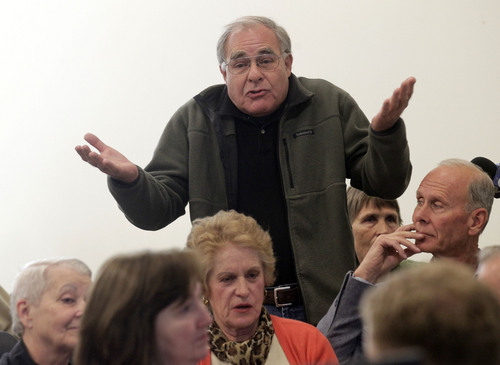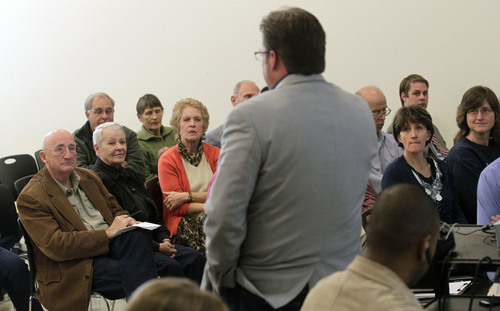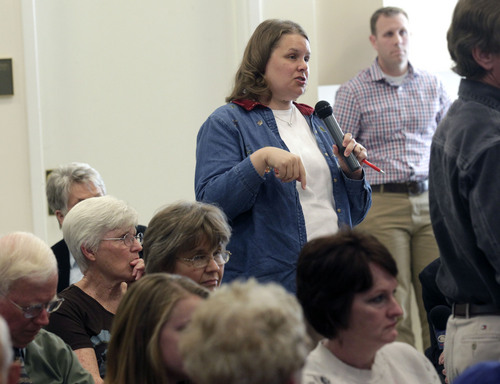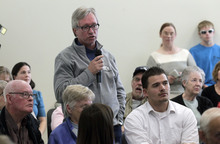This is an archived article that was published on sltrib.com in 2013, and information in the article may be outdated. It is provided only for personal research purposes and may not be reprinted.
Provo • The Count My Vote effort to replace party caucuses with direct primaries either will diminish Utah's election system sharply or greatly enhance it.
At Provo City Library on Wednesday, comments from some 60 passionate voters were fairly evenly divided between those supporting Count My Vote and people concerned by the initiative — although caucus supporters seemed to be in the majority.
"I like the current system because I can make a few calls [to delegates] and find out what's going on," said Wendi Baggaley of Eagle Mountain. "I have a hard time believing that with this direct primary, people will have the time to find out about each candidate."
But others are ready for a change, like Duane Call, Sr. of Provo.
"I do not like the idea of giving up my vote to a caucus delegate," he said. "I've been to a few caucuses and felt they were already stacked."
The hearing was one of seven being held at various sites Wednesday and Thursday before Count My Vote supporters may circulate petitions.
By April 15, 102,000 signatures are needed from 26 of Utah's 29 senate districts to get the proposal on the 2014 ballot. Lindsay Zizumbo of Count My Vote said organizers hope to get 130,000 signatures.
Proponents contend the state's caucus and convention system limits citizen participation and is dominated by activists who attend neighborhood meetings and county conventions before statewide conventions.
Zizumbo pointed out that Utah is in the bottom 10 in voter turnout. "We believe [a direct primary system] will facilitate greater participation," she said, more like the 45 states with primaries.
But both the Republican and Democratic parties in Utah endorse the current system as an example of grass-roots politics where candidates must engage delegates.
Daryl Acumen, co-chairman of the Utah County Republican Party, said the Count My Vote movement was a reaction to Mike Lee's election to the U.S. Senate in 2010 — following the ouster of longtime Sen. Bob Bennett at the 2010 state GOP convention.
Acumen noted that Lee won the Republican nomination in a primary after coming in second to Tim Bridgewater in the convention. "The argument that we need more primaries, I'm just not buying it," he said.
Marilyn Kofford of Alpine said the current setup seems closed off to most voters. "There are a lot of people who feel disenfranchised by the caucus system," she said.
Orem resident Merlin Weeks warned that a primary would favor urban counties along the Wasatch Front. "All the small areas and all the small counties won't have a voice with a primary," he said.
Eric Hyer of Provo supported the petition drive, observing that if Count My Vote reaches the ballot, every Utahn will get a chance to vote on it.
That Utah may be among the last states to retain a caucus system is a good thing, according to Lisa Shepherd.
"Utah is different. You know what I mean. We do things differently here," she said. "I don't know how we are failing when we have the number one economy."
But for retired history and political science professor Oscar Jesperson, who lives in Orem, it's time for change.
"Utah has become one of the most out-of-balance states politically that I have ever known," he said in an interview outside the meeting room. "Right now, I would favor the primary system over the caucus."


